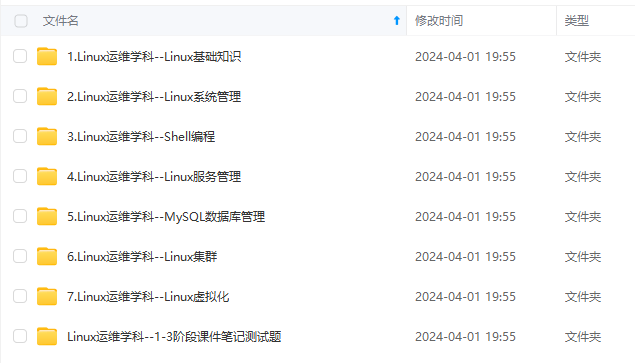k8s收集日志
k8s在1.23版本之后就不用fluentd-es来收集日志了,而是把日志通过fluentd把日志直接打到存储,所以下面的文件在后面的版本已经没有了,不过还是照样可以用。
k8s收集日志
写在前面: k8s在1.23版本之后就不用fluentd-es来收集日志了,而是把日志通过fluentd把日志直接打到存储,所以下面的文件在后面的版本已经没有了,不过还是照样可以用
一.收集控制台日志
采用fluentd+es+kibana来做
所需要的文件可以在这里找
https://github.com/kubernetes/kubernetes/tree/v1.23.0/cluster/addons/fluentd-elasticsearch
1.创建目录并下载所需文件
cd /root/k8s/yaml/efk
[root@worker1 efk]# ll
total 44
-rw-r--r-- 1 root root 172 Dec 28 15:58 create-logging-namespace.yaml
-rw-r--r-- 1 root root 572 Dec 28 15:59 es-service.yaml
-rw-r--r-- 1 root root 3153 Dec 28 16:05 es-statefulset.yaml
drwxr-xr-x 2 root root 4096 Dec 28 23:15 filebeat
-rw-r--r-- 1 root root 16121 Dec 28 15:58 fluentd-es-configmap.yaml
-rw-r--r-- 1 root root 2569 Dec 28 15:58 fluentd-es-ds.yaml
-rw-r--r-- 1 root root 1542 Dec 28 16:09 kibana-deployment.yaml
-rw-r--r-- 1 root root 387 Dec 28 16:29 kibana-service.yaml
2.创建es
基本不需要改动,yaml文件下载下来直接创建就行
kubectl create -f create-logging-namespace.yaml
kubectl create -f es-service.yaml
kubectl create -f es-statefulset.yaml
查看
kubectl get pod.svc -n logging
NAME READY STATUS RESTARTS AGE
pod/elasticsearch-logging-0 1/1 Running 0 17h
NAME TYPE CLUSTER-IP EXTERNAL-IP PORT(S) AGE
service/elasticsearch-logging ClusterIP 192.168.253.134 <none> 9200/TCP,9300/TCP 17h
测试
[root@worker1 efk]# curl 192.168.253.134:9200
{
"name" : "elasticsearch-logging-0",
"cluster_name" : "kubernetes-logging",
"cluster_uuid" : "TgivkC3MTiCSUYoKdJJ7Nw",
"version" : {
"number" : "7.10.2",
"build_flavor" : "oss",
"build_type" : "docker",
"build_hash" : "747e1cc71def077253878a59143c1f785afa92b9",
"build_date" : "2021-01-13T00:42:12.435326Z",
"build_snapshot" : false,
"lucene_version" : "8.7.0",
"minimum_wire_compatibility_version" : "6.8.0",
"minimum_index_compatibility_version" : "6.0.0-beta1"
},
"tagline" : "You Know, for Search"
}
3.创建fluentd
kubectl create -f fluentd-es-configmap.yaml
kubectl create -f fluentd-es-ds.yaml
这里我贴一下自己的文件,里面有些东西改了(里面的日志路径根据自己实际情况来写,主要就是区分是docker的运行时日志还是container的运行时日志,两种组件路径不一样,后面有写)
fluentd-es-configmap.yaml
kind: ConfigMap
apiVersion: v1
metadata:
name: fluentd-es-config-v0.2.1
namespace: logging
labels:
addonmanager.kubernetes.io/mode: Reconcile
data:
system.conf: |-
<system>
root_dir /tmp/fluentd-buffers/
</system>
containers.input.conf: |-
<source>
@id fluentd-containers.log
@type tail
path /var/log/containers/*.log
pos_file /var/log/es-containers.log.pos
tag raw.kubernetes.*
read_from_head true
<parse>
@type multi_format
<pattern>
format json
time_key time
time_format %Y-%m-%dT%H:%M:%S.%NZ
</pattern>
<pattern>
format /^(?<time>.+) (?<stream>stdout|stderr) [^ ]* (?<log>.*)$/
time_format %Y-%m-%dT%H:%M:%S.%N%:z
</pattern>
</parse>
</source>
# Detect exceptions in the log output and forward them as one log entry.
<match raw.kubernetes.**>
@id raw.kubernetes
@type detect_exceptions
remove_tag_prefix raw
message log
stream stream
multiline_flush_interval 5
max_bytes 500000
max_lines 1000
</match>
# Concatenate multi-line logs
<filter **>
@id filter_concat
@type concat
key message
multiline_end_regexp /\n$/
separator ""
</filter>
# Enriches records with Kubernetes metadata
<filter kubernetes.**>
@id filter_kubernetes_metadata
@type kubernetes_metadata
</filter>
# Fixes json fields in Elasticsearch
<filter kubernetes.**>
@id filter_parser
@type parser
key_name log
reserve_data true
remove_key_name_field true
<parse>
@type multi_format
<pattern>
format json
</pattern>
<pattern>
format none
</pattern>
</parse>
</filter>
system.input.conf: |-
# Example:
# 2015-12-21 23:17:22,066 [salt.state ][INFO ] Completed state [net.ipv4.ip_forward] at time 23:17:22.066081
<source>
@id minion
@type tail
format /^(?<time>[^ ]* [^ ,]*)[^\[]*\[[^\]]*\]\[(?<severity>[^ \]]*) *\] (?<message>.*)$/
time_format %Y-%m-%d %H:%M:%S
path /var/log/salt/minion
pos_file /var/log/salt.pos
tag salt
</source>
# Example:
# Dec 21 23:17:22 gke-foo-1-1-4b5cbd14-node-4eoj startupscript: Finished running startup script /var/run/google.startup.script
<source>
@id startupscript.log
@type tail
format syslog
path /var/log/startupscript.log
pos_file /var/log/es-startupscript.log.pos
tag startupscript
</source>
# Examples:
# time="2016-02-04T06:51:03.053580605Z" level=info msg="GET /containers/json"
# time="2016-02-04T07:53:57.505612354Z" level=error msg="HTTP Error" err="No such image: -f" statusCode=404
# TODO(random-liu): Remove this after cri container runtime rolls out.
<source>
@id docker.log
@type tail
format /^time="(?<time>[^"]*)" level=(?<severity>[^ ]*) msg="(?<message>[^"]*)"( err="(?<error>[^"]*)")?( statusCode=($<status_code>\d+))?/
path /var/log/docker.log
pos_file /var/log/es-docker.log.pos
tag docker
</source>
# Example:
# 2016/02/04 06:52:38 filePurge: successfully removed file /var/etcd/data/member/wal/00000000000006d0-00000000010a23d1.wal
<source>
@id etcd.log
@type tail
# Not parsing this, because it doesn't have anything particularly useful to
# parse out of it (like severities).
format none
path /var/log/etcd.log
pos_file /var/log/es-etcd.log.pos
tag etcd
</source>
# Multi-line parsing is required for all the kube logs because very large log
# statements, such as those that include entire object bodies, get split into
# multiple lines by glog.
# Example:
# I0204 07:32:30.020537 3368 server.go:1048] POST /stats/container/: (13.972191ms) 200 [[Go-http-client/1.1] 10.244.1.3:40537]
<source>
@id kubelet.log
@type tail
format multiline
multiline_flush_interval 5s
format_firstline /^\w\d{4}/
format1 /^(?<severity>\w)(?<time>\d{4} [^\s]*)\s+(?<pid>\d+)\s+(?<source>[^ \]]+)\] (?<message>.*)/
time_format %m%d %H:%M:%S.%N
path /var/log/kubelet.log
pos_file /var/log/es-kubelet.log.pos
tag kubelet
</source>
# Example:
# I1118 21:26:53.975789 6 proxier.go:1096] Port "nodePort for kube-system/default-http-backend:http" (:31429/tcp) was open before and is still needed
<source>
@id kube-proxy.log
@type tail
format multiline
multiline_flush_interval 5s
format_firstline /^\w\d{4}/
format1 /^(?<severity>\w)(?<time>\d{4} [^\s]*)\s+(?<pid>\d+)\s+(?<source>[^ \]]+)\] (?<message>.*)/
time_format %m%d %H:%M:%S.%N
path /var/log/kube-proxy.log
pos_file /var/log/es-kube-proxy.log.pos
tag kube-proxy
</source>
# Example:
# I0204 07:00:19.604280 5 handlers.go:131] GET /api/v1/nodes: (1.624207ms) 200 [[kube-controller-manager/v1.1.3 (linux/amd64) kubernetes/6a81b50] 127.0.0.1:38266]
<source>
@id kube-apiserver.log
@type tail
format multiline
multiline_flush_interval 5s
format_firstline /^\w\d{4}/
format1 /^(?<severity>\w)(?<time>\d{4} [^\s]*)\s+(?<pid>\d+)\s+(?<source>[^ \]]+)\] (?<message>.*)/
time_format %m%d %H:%M:%S.%N
path /var/log/kube-apiserver.log
pos_file /var/log/es-kube-apiserver.log.pos
tag kube-apiserver
</source>
# Example:
# I0204 06:55:31.872680 5 servicecontroller.go:277] LB already exists and doesn't need update for service kube-system/kube-ui
<source>
@id kube-controller-manager.log
@type tail
format multiline
multiline_flush_interval 5s
format_firstline /^\w\d{4}/
format1 /^(?<severity>\w)(?<time>\d{4} [^\s]*)\s+(?<pid>\d+)\s+(?<source>[^ \]]+)\] (?<message>.*)/
time_format %m%d %H:%M:%S.%N
path /var/log/kube-controller-manager.log
pos_file /var/log/es-kube-controller-manager.log.pos
tag kube-controller-manager
</source>
# Example:
# W0204 06:49:18.239674 7 reflector.go:245] pkg/scheduler/factory/factory.go:193: watch of *api.Service ended with: 401: The event in requested index is outdated and cleared (the requested history has been cleared [2578313/2577886]) [2579312]
<source>
@id kube-scheduler.log
@type tail
format multiline
multiline_flush_interval 5s
format_firstline /^\w\d{4}/
format1 /^(?<severity>\w)(?<time>\d{4} [^\s]*)\s+(?<pid>\d+)\s+(?<source>[^ \]]+)\] (?<message>.*)/
time_format %m%d %H:%M:%S.%N
path /var/log/kube-scheduler.log
pos_file /var/log/es-kube-scheduler.log.pos
tag kube-scheduler
</source>
# Example:
# I0603 15:31:05.793605 6 cluster_manager.go:230] Reading config from path /etc/gce.conf
<source>
@id glbc.log
@type tail
format multiline
multiline_flush_interval 5s
format_firstline /^\w\d{4}/
format1 /^(?<severity>\w)(?<time>\d{4} [^\s]*)\s+(?<pid>\d+)\s+(?<source>[^ \]]+)\] (?<message>.*)/
time_format %m%d %H:%M:%S.%N
path /var/log/glbc.log
pos_file /var/log/es-glbc.log.pos
tag glbc
</source>
# Example:
# I0603 15:31:05.793605 6 cluster_manager.go:230] Reading config from path /etc/gce.conf
<source>
@id cluster-autoscaler.log
@type tail
format multiline
multiline_flush_interval 5s
format_firstline /^\w\d{4}/
format1 /^(?<severity>\w)(?<time>\d{4} [^\s]*)\s+(?<pid>\d+)\s+(?<source>[^ \]]+)\] (?<message>.*)/
time_format %m%d %H:%M:%S.%N
path /var/log/cluster-autoscaler.log
pos_file /var/log/es-cluster-autoscaler.log.pos
tag cluster-autoscaler
</source>
# Logs from systemd-journal for interesting services.
# TODO(random-liu): Remove this after cri container runtime rolls out.
<source>
@id journald-docker
@type systemd
matches [{ "_SYSTEMD_UNIT": "docker.service" }]
<storage>
@type local
persistent true
path /var/log/journald-docker.pos
</storage>
read_from_head true
tag docker
</source>
<source>
@id journald-container-runtime
@type systemd
matches [{ "_SYSTEMD_UNIT": "{{ fluentd_container_runtime_service }}.service" }]
<storage>
@type local
persistent true
path /var/log/journald-container-runtime.pos
</storage>
read_from_head true
tag container-runtime
</source>
<source>
@id journald-kubelet
@type systemd
matches [{ "_SYSTEMD_UNIT": "kubelet.service" }]
<storage>
@type local
persistent true
path /var/log/journald-kubelet.pos
</storage>
read_from_head true
tag kubelet
</source>
<source>
@id journald-node-problem-detector
@type systemd
matches [{ "_SYSTEMD_UNIT": "node-problem-detector.service" }]
<storage>
@type local
persistent true
path /var/log/journald-node-problem-detector.pos
</storage>
read_from_head true
tag node-problem-detector
</source>
<source>
@id kernel
@type systemd
matches [{ "_TRANSPORT": "kernel" }]
<storage>
@type local
persistent true
path /var/log/kernel.pos
</storage>
<entry>
fields_strip_underscores true
fields_lowercase true
</entry>
read_from_head true
tag kernel
</source>
forward.input.conf: |-
# Takes the messages sent over TCP
<source>
@id forward
@type forward
</source>
monitoring.conf: |-
# Prometheus Exporter Plugin
# input plugin that exports metrics
<source>
@id prometheus
@type prometheus
</source>
<source>
@id monitor_agent
@type monitor_agent
</source>
# input plugin that collects metrics from MonitorAgent
<source>
@id prometheus_monitor
@type prometheus_monitor
<labels>
host ${hostname}
</labels>
</source>
# input plugin that collects metrics for output plugin
<source>
@id prometheus_output_monitor
@type prometheus_output_monitor
<labels>
host ${hostname}
</labels>
</source>
# input plugin that collects metrics for in_tail plugin
<source>
@id prometheus_tail_monitor
@type prometheus_tail_monitor
<labels>
host ${hostname}
</labels>
</source>
output.conf: |-
<match **>
@id elasticsearch
@type elasticsearch
@log_level info
type_name _doc
include_tag_key true
host elasticsearch-logging
port 9200
logstash_format true
<buffer>
@type file
path /var/log/fluentd-buffers/kubernetes.system.buffer
flush_mode interval
retry_type exponential_backoff
flush_thread_count 2
flush_interval 5s
retry_forever
retry_max_interval 30
chunk_limit_size 2M
total_limit_size 500M
overflow_action block
</buffer>
</match>
fluentd-es-ds.yaml
apiVersion: v1
kind: ServiceAccount
metadata:
name: fluentd-es
namespace: logging
labels:
k8s-app: fluentd-es
addonmanager.kubernetes.io/mode: Reconcile
---
kind: ClusterRole
apiVersion: rbac.authorization.k8s.io/v1
metadata:
name: fluentd-es
labels:
k8s-app: fluentd-es
addonmanager.kubernetes.io/mode: Reconcile
rules:
- apiGroups:
- ""
resources:
- "namespaces"
- "pods"
verbs:
- "get"
- "watch"
- "list"
---
kind: ClusterRoleBinding
apiVersion: rbac.authorization.k8s.io/v1
metadata:
name: fluentd-es
labels:
k8s-app: fluentd-es
addonmanager.kubernetes.io/mode: Reconcile
subjects:
- kind: ServiceAccount
name: fluentd-es
namespace: logging
apiGroup: ""
roleRef:
kind: ClusterRole
name: fluentd-es
apiGroup: ""
---
apiVersion: apps/v1
kind: DaemonSet
metadata:
name: fluentd-es-v3.1.1
namespace: logging
labels:
k8s-app: fluentd-es
version: v3.1.1
addonmanager.kubernetes.io/mode: Reconcile
spec:
selector:
matchLabels:
k8s-app: fluentd-es
version: v3.1.1
template:
metadata:
labels:
k8s-app: fluentd-es
version: v3.1.1
spec:
securityContext:
seccompProfile:
type: RuntimeDefault
priorityClassName: system-node-critical
serviceAccountName: fluentd-es
containers:
- name: fluentd-es
image: registry.cn-beijing.aliyuncs.com/dotbalo/fluentd:v3.1.0
env:
- name: FLUENTD_ARGS
value: --no-supervisor -q
resources:
limits:
memory: 500Mi
requests:
cpu: 100m
memory: 200Mi
volumeMounts:
- name: varlog
mountPath: /var/log
- name: varlogcontainers
mountPath: /var/log/containers
readOnly: true
- name: dockercontainerlogdirectory
mountPath: /var/log/pods
readOnly: true
- name: config-volume
mountPath: /etc/fluent/config.d
ports:
- containerPort: 24231
name: prometheus
protocol: TCP
livenessProbe:
tcpSocket:
port: prometheus
initialDelaySeconds: 5
timeoutSeconds: 10
readinessProbe:
tcpSocket:
port: prometheus
initialDelaySeconds: 5
timeoutSeconds: 10
terminationGracePeriodSeconds: 30
nodeSelector:
fluentd: "true"
volumes:
- name: varlog
hostPath:
path: /var/log
- name: varlogcontainers
hostPath:
path: /var/log/containers
- name: dockercontainerlogdirectory
hostPath:
path: /var/log/pods
- name: config-volume
configMap:
name: fluentd-es-config-v0.2.1
4.创建kibana
kibana的两个文件需要稍作修改
kibana-service.yaml
apiVersion: v1
kind: Service
metadata:
name: kibana-logging
namespace: logging
labels:
k8s-app: kibana-logging
kubernetes.io/cluster-service: "true"
addonmanager.kubernetes.io/mode: Reconcile
kubernetes.io/name: "Kibana"
spec:
type: NodePort
ports:
- port: 5601
protocol: TCP
targetPort: ui
nodePort: 30022
selector:
k8s-app: kibana-logging
kibana-deployment.yaml
将文件中的下面两行注释掉,不然访问不了
# - name: SERVER_BASEPATH
# value: /api/v1/namespaces/logging/services/kibana-logging/proxy
然后创建
kubectl create -f kibana-service.yaml
kubectl create -f kibana-deployment.yaml
5.浏览器访问kibana
先创建对应的索引,然后选择需要的字段,就可以看到内容了

注意: 这种方式主要是收集k8s打到控制台的日志,也就是/var/lib/docker/containers这里的json日志文件,收集这种日志文件还有个前提,就是你的k8s运行时组件是docker,而不是container,要不然是收集不到的,接下来是收集业务容器内日志
containerd :
日志存储路径:
真实路径:/var/log/pods/$CONTAINER_NAMES
软连接:同时kubelet也会在/var/log/containers目录下创建软链接指向/var/log/pods/$CONTAINER_NAMES
docker:
真实路径:/var/lib/docker/containers/$CONTAINERID
软连接:kubelet会在/var/log/pods和/var/log/containers创建软连接指向/var/lib/docker/containers/$CONTAINERID
上面的
============================== 分割线 =============================================
二.收集业务容器内日志
这种架构是采用filebeat+kafka+zookeeper+logstash+es+kibana来做的,所需的文件可以在这找
https://github.com/dotbalo/k8s/tree/master/fklek/7.x
1.安装zookeeper+kafka
我们采用helm的方式来安装,比较快
wget https://get.helm.sh/helm-v3.1.2-linux-amd64.tar.gz
tar xf helm-v3.1.2-linux-amd64.tar.gz
mv linux-amd64/ helm
cd helm/
cp -r helm /usr/local/bin/
helm version
添加两个仓库
helm repo add bitnami https://charts.bitnami.com/bitnami
helm repo add ali-stable https://kubernetes.oss-cn-hangzhou.aliyuncs.com/charts
注意最后的 点 别忘了
helm pull bitnami/zookeeper
tar xf zookeeper-11.1.2.tgz
cd zookeeper/
helm install zookeeper -n logging --set auth.enabled=false --set allowAnonymousLogin=true --set persistence.enabled=false .
cd ../
helm pull bitnami/kafka
tar xf kafka-20.0.6.tgz
cd kafka/
helm install kafka -n logging --set zookeeper.enabled=false --set replicaCount=1 --set externalZookeeper.servers=zookeeper --set persistence.enabled=false .
kubectl get pod -n logging
注意:如果需要调整一些参数,需要编辑values.yaml文件
另外,helm卸载命令如下
helm uninstall zookeeper -n logging
2.安装logstash
logstash的版本最好和之前安装的es的版本一致
cd /root/k8s/yaml/efk/filebeat/
kubectl create -f filebeat-cm.yaml -n logging
kubectl create -f logstash-cm.yaml -n logging
kubectl create -f logstash-service.yaml -n logging
kubectl create -f logstash-deploy.yaml -n logging
3.安装业务pod
业务pod以便车模式绑定filebeat容器,然后共享日志目录,这样filebeat就可以直接收集对应日志,并发送到kafka,再由logstash打到es
kubectl create -f app.yaml -n logging
安装的时候,下面记得修改为你自己的标签
nodeSelector:
kubernetes.io/hostname: 172.16.0.2
4.浏览器访问kibana
建立索引,然后查看数据,查看之前先生成一些数据,进到app业务pod中,再到共享的日志目录,创建日志文件,循环写入一些日志
kubectl exec -it -n logging app-8477d9675b-fd4v5 -c app -- sh
cd /home/tomcat/target/
touch 123.log
for i in `seq 1 100`;do echo $i >> 123.log ;done

这个索引名字是在logstash-cm.yaml 中定义的,可自行查看
图中可以看到收集到的日志信息
更多推荐
 已为社区贡献27条内容
已为社区贡献27条内容









所有评论(0)